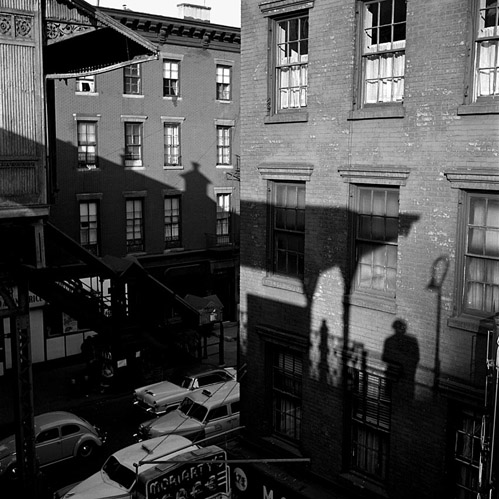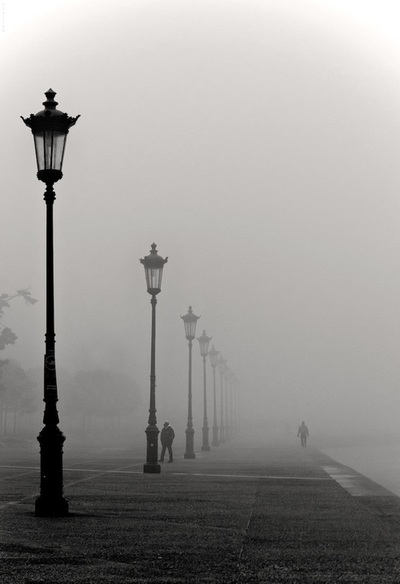Notes on a talk by Michael Stone at Centre of Gravity, Toronto, May 15, 2012
Zen can be quite a performance sometimes. Especially when the teacher is letting one fireball after another out of their mouth. But Shunryu Suzuki (author of Beginners Mind, Zen Mind) speaks in a more modest way. When he’s done there’s a stop sign that appears in your blood and that stops you mid-gesture and you have to wonder: what was that again? What did he say?
Trudy
Trudy Dixon transcribed, edited and organized these talks. Most good teachers didn’t write anything down. How could you ever trust a teacher that wrote things down? Dixon was a student of Suzuki’s when she was in her 20s. She worked hard to edit the book and when it was finished she discovered she had cancer and she died when she was only 30 years old.
Stories
Before studying Beginners Mind, Zen Mind I wanted to bring Suzuki into the room a bit, and relate a few anecdotes about him.
A student asks in Dokusan: If a tree falls in the forest and nobody is around, does it make a sound? Suzuki: It doesn’t matter.
A student said, “I compare myself to other students and feel inadequate. I haven’t read anything about Buddhism.”
“Oh! That’s the best way to come to practice,” Suzuki Roshi answered.
It was my first session and, before the first day was over, I was convinced I couldn’t make it. My husband’s turn for dokusan came that afternoon. He asked Suzuki Roshi to see me instead. “This is all a mistake,” I told Roshi. “I can’t do this, I just came to be with my husband.”
“There is no mistake,” he insisted. “You may leave, of course, but there is no place to go.”
My family and I returned to San Francisco after being away from the Zen Centre for a year. When I saw Suzuki Roshi I said, “I think I got a little lost.” He replied, “You can never get lost.”
Nowhere to Go
I think we’re all familiar with the above scenario. At the beginning of a retreat someone comes with a friend and the first day is the hell realm. You sit with the momentum of the nervous system, you’re completely identified with your mind. The job of the teacher is to hold someone in that space until they give up. They might say something like, “I don’t know how to work with my mind.” And then they give up every idea they had about what they should or shouldn’t do, and then practice can really begin. Perhaps they say to the teacher, “This isn’t working for me, I have to go,” and they start walking down the driveway. But halfway out they turn around realizing there’s nowhere to go. There’s nowhere else to be.
Spare Time
At a question session with Suzuki-roshi at Sokoji, a young man asked, “What should a Zen practitioner do with his spare time?”
Suzuki at first looked perplexed and repeated the phrase, “Spare time?” He then began to smile and repeated again, “Spare time.” And then began to laugh uproariously.
I relate this to the space between poses in yoga. The space that no American has yet branded and labeled and marketed and put on the cover of Yoga Journal. This is where the attention tends to drift.
Great Joy
“When you prescribed a year at this place for me, you told me I would find great joy,” a student said to Suzuki Roshi, as they sat sipping tea in Suzuki’s cabin in Tassajara. “To find that great joy, I will first have to lose the will to live, won’t I, Roshi?” “Yes,” he said, “but without gaining a will to die.”
Before going on a long retreat it’s very common to have this idea: am I giving up my life? Two nights before going on a retreat it’s traditional to fall completely hopelessly madly in love. Do I have to give up my will to live? Yes, but without gaining a will to die.
My favourite story about Suzuki was about a talk he gave at Cambridge. He’d been invited for this talk and arrived a day early and found that everyone was busily preparing for this very special talk. So he rolled up his sleeves and began to help them putting out chairs and cleaning the space.
Suzuki is not a dramatist, he speaks in sentences that sneak up on you. Sometimes you have to read a simple mind over and over again. This way of talking is like meditation. When I was young I wanted peak experiences in meditation, but if you’re trying to get that, it only hinders practice, it gets in the way. Sometimes I hear about wonderful teachers giving you teachings about flowers in the navel and how you inhale the entire universe and I can get so envious. The practice we do here at the Centre of Gravity is so brown rice, it’s so ordinary. Here we just follow the breath and finish our exhale in the mula bhanda. The earthiness of finishing your exhale in the pelvic floor which is your home that can be touched at the bottom of each breath. Sitting for me is like Suzuki’s personality. Special and not special.
“If you discriminate too much you will lose yourself.” What is discrimination? It’s my whole life. But isn’t it the opposite? The more we discern the more we become ourselves. Find awe and go past it. How do you go past awe? You express it. In us is a vastness and boundlessness that we touch not by pushing forward but by returning to silence. Returning home.
Suzuki: “If you discriminate too much, you limit yourself. If you are too demanding or too greedy, your mind is not rich and self-sufficient. If we lose our original self-sufficient mind, we will lose al precepts. When you mind becomes demanding, when you long for something, you will end up violating your own precepts: not to tell lies, not to steal, not to kill, not to be immoral, and so forth. If you keep your original mind, the precepts will keep themselves.”
How can we forgive? The first step is to see that what you’re feeling isn’t so personal, your feelings don’t need to be taken so personally. Breathe some space into that hurt. Watch it arise as a series of sensations passing through the frame of awareness. It doesn’t belong to you, you don’t own it. Let it go. But sometimes – have you ever noticed this? – you do the work of forgiveness and then someone hurts you again. Maybe because you haven’t taken the second step of forgiveness. Being assertive. First you need to know what you feel, and then you need to know what you need. And they you need to say or do something about it. How can you know what you feel, and how to do something about it? Spiritual practice is not private, it’s about touching beginner’s mind, that place of awe. You drop your story, the story of me, myself and mine, and the experience isn’t personal, you aren’t back telling the same old story. You’re in awe. You’re in awe of being heartbroken. Of being hurt. And then you go beyond awe and express yourself in your own way.
One Step
The connection between ethical conduct and our original self-sufficiency is startling. When we lose track of ourselves we start scheming. We lose deep self-sufficiency. How do I lose my self-sufficiency? How do I lose track of myself? It’s an amazing way to think about ethics: to resume your boundless original mind. Step back into yourself. Not trying to advance in practice, not discriminating, but step back. It takes one step. One step is the only step there is.
Suzuki: “When you do things in the right way, at the right time, everything else will be organized.”
When I go through my catastrophe of a week I think: if only I could have waited another hour before speaking. When we do yoga here we do it slowly. We set up the gaze, we set up the right hand, the shoulder blade, the inhale and the exhale. We do each thing in the right way rather than jumping into the picture of the pose. The picture of the pose, the idea of the way it’s supposed to be, that’s only yoga gossip. It means there’s a gap between process and the finish line.
We used to do a practice where we would take five minutes longer with everything. When you’re really feeling lonely take five minutes longer with it. If someone is saying something that’s hard to bear just wait another five minutes. If you forget about this please try and look at Carina’s hand, she has a number five tattooed there to remind us all. My theory is that no feeling actually lasts longer than five minutes. Your anger turns to boredom turns to hunger and then you’re angry again. It keeps changing.
“To live in the realm of Buddha nature means to die as a small being, moment after moment. When we lose our balance we die, but at the same time we also develop ourselves, we grow. Whatever we see is changing, losing its balance. The reason everything looks beautiful is because it is out of balance, but its background is always in perfect harmony. This is how everything exists in the realm of Buddha nature, losing its balance against a background of perfect balance. So if you see things without realizing the background of Buddha nature, everything appears to be in the form of suffering. But if you understand the background of existence, you realize that suffering itself is how we live, and how we extend our life.”
Wabi Sabi (from Wiki)
“Wabi-sabi is the most conspicuous and characteristic feature of traditional Japanese beauty and it occupies roughly the same position in the Japanese pantheon of aesthetic values as do the Greek ideals of beauty and perfection in the West.”[1] “if an object or expression can bring about, within us, a sense of serene melancholy and a spiritual longing, then that object could be said to be wabi-sabi.”[2] “[Wabi-sabi] nurtures all that is authentic by acknowledging three simple realities: nothing lasts, nothing is finished, and nothing is perfect.”[3]
The words wabi and sabi do not translate easily. Wabi originally referred to the loneliness of living in nature, remote from society; sabi meant “chill”, “lean” or “withered”. Around the 14th century these meanings began to change, taking on more positive connotations.[1] Wabi now connotes rustic simplicity, freshness or quietness, and can be applied to both natural and human-made objects, or understated elegance. It can also refer to quirks and anomalies arising from the process of construction, which add uniqueness and elegance to the object. Sabi is beauty or serenity that comes with age, when the life of the object and its impermanence are evidenced in its patina and wear, or in any visible repairs.
After centuries of incorporating artistic and Buddhist influences from China, wabi sabi eventually evolved into a distinctly Japanese ideal. Over time, the meanings of wabi and sabi shifted to become more lighthearted and hopeful. Around 700 years ago, particularly among the Japanese nobility, understanding emptiness and imperfection was honored as tantamount to the first step to satori, or enlightenment. In today’s Japan, the meaning of wabi sabi is often condensed to wisdom in natural simplicity. In art books, it is typically defined as flawed beauty. [4]
Vast space is the screen in front of which suffering unfolds.
And we need to help each, we need to relieve that suffering.
Suffering is what makes things beautiful in a jagged way.
Struggle is how we advance in life.
The beauty is in that effort.
There’s a feeling in Suzuki’s words, and in how I like to think of practice, of expression through stillness.
There is so much human feeling in the quiet of this room.
The quiet of us sitting together.
This room grounded in silence grounded in the city, grounded in silence.
This practice is all about our human feelings.
Not just neediness and anger and frustration.
Other feels too: our gratitude, our love, our connection, our unspeakable sense of wonder in living.
Why do we go on?
You can’t go on without this feeling.
It’s easy to forget and to cover the universe.
We are here to remember.
So please sit with a sense of urgency.
It’s vitally important that you recall the wonder.
And your answer to that wonder.





